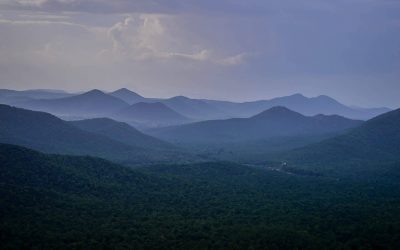- The United Nations General Assembly declared 2021 – 2030 the UN Decade on Ecosystem Restoration.
- Restoration could remove up to 26 gigatons of greenhouse gases from the atmosphere.
- UN Environment and FAO will lead the implementation.
The UN Decade on Ecosystem Restoration, declared today by the UN General Assembly, aims to massively scale up the restoration of degraded and destroyed ecosystems as a proven measure to fight the climate crisis and enhance food security, water supply and biodiversity.
The degradation of land and marine ecosystems undermines the well-being of 3.2 billion people and costs about 10 per cent of the annual global gross product in loss of species and ecosystems services. Key ecosystems that deliver numerous services essential to food and agriculture, including
supply of freshwater, protection against hazards and provision of habitat for species such as fish and pollinators, are declining rapidly.
“We are pleased that our vision for a dedicated Decade has become reality,” said Lina Pohl, Minister of Environment and Natural Resources of El Salvador, a regional restoration leader. “We need to promote an aggressive restoration program that builds resilience, reduces vulnerability and increases the ability of systems to adapt to daily threats and extreme events.”
Restoration of 350 million hectares of degraded land between now and 2030 could generate USD 9 trillion in ecosystem services and take an additional 13-26 gigatons of greenhouse gases out of the atmosphere.
“The UN Decade on Ecosystem Restoration will help countries race against the impacts of climate change and biodiversity loss,” said José Graziano da Silva, Director-General of the Food and Agriculture Organization of the United Nations (FAO). “Ecosystems are being degraded at an unprecedented rate. Our global food systems and the livelihoods of many millions of people depend on all of us working together to restore healthy and sustainable ecosystems for today and the future.”
“UN Environment and FAO are honored to lead the implementation of the Decade with our partners,” said Joyce Msuya, Acting Executive Director of the UN Environment Programme. “The degradation of our ecosystems has had a devastating impact on both people and the environment. We are excited that momentum for restoring our natural environment has been gaining pace because nature is our best bet to tackle climate change and secure the future.”
The Decade, a global call to action, will draw together political support, scientific research and financial muscle to massively scale up restoration from successful pilot initiatives to areas of millions of hectares. Research shows that more than two billion hectares of the world’s deforested and degraded landscapes offer
potential for restoration.
The Decade will accelerate existing global restoration goals, for
example the Bonn Challenge, which aims to restore 350 million hectares of degraded ecosystems by 2030 – an area almost the size of India. Currently 57 countries, subnational governments and private organizations have committed to bring over 170 million hectares under restoration. This endeavor builds on regional efforts such as the Initiative 20×20 in Latin America that aims to restore 20 million hectares of degraded land by 2020, and the AFR100 African Forest Landscape Restoration Initiative that aims to bring 100 million hectares of degraded land under restoration by 2030.
Ecosystem restoration is defined as a process of reversing the degradation of ecosystems, such as landscapes, lakes and oceans to regain their ecological functionality; in other words, to improve the productivity and capacity of ecosystems to meet the needs of society. This can be done by allowing the natural regeneration of overexploited ecosystems, for example, or by planting trees and other plants.
Ecosystem restoration is fundamental to achieving the Sustainable Development Goals, mainly those on climate change, poverty eradication, food security, water and biodiversity conservation. It is also a pillar of international environmental conventions, such as the Ramsar Convention on wetlands and the Rio Conventions on biodiversity, desertification and climate change.
Currently, about 20 per cent of the planet’s vegetated surface shows declining trends in productivity with fertility losses linked to erosion, depletion and pollution in all parts of the world. By 2050 degradation and climate change could reduce crop yields by 10 per cent globally and by up to 50 per cent in certain regions.
Source: Press Release unenvironment.org
About FAO
The Food and Agriculture Organization (FAO) believes that sustainable food systems can be the common thread that links the different challenges the world faces in building a sustainable future. FAO is the custodian UN agency for 21 of the Sustainable Development Goals’ indicators and is a contributing agency for a further four. In this capacity, FAO is supporting countries’ efforts in achieving the 2030 Agenda.
About UN Environment
The United Nations Environment Programme (UN Environment) is the leading global environmental authority that sets the global environmental agenda, promotes the coherent implementation of the environmental dimension of sustainable development within the United Nations system, and serves as an authoritative advocate for the global environment. Its mission is to provide leadership and encourage partnership in caring for the environment by inspiring, informing, and enabling nations and peoples to improve their quality of life without compromising that of future generations.



0 Comments